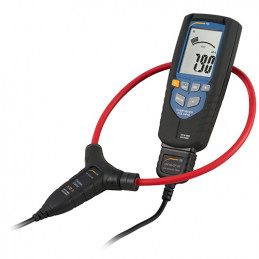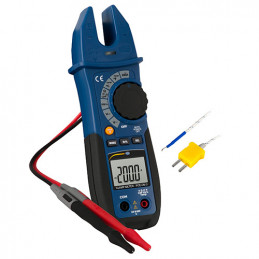Reference: PCE-CM 40
Brand: PCE INSTRUMENTS
Flexible bulb - PCE-CM 40 - PCE Instruments
Flexible bulb - PCE-CM 40 - PCE Instruments Flexible ampermeter up to 3000 A - Rogowski coil 170 mm in diameter - Inrush function - frequency measurement - LCD screen Warranty 1 year
€227.88 including tax



















